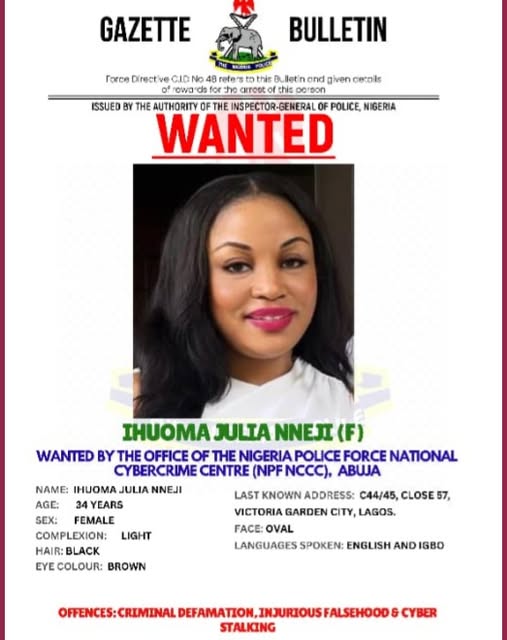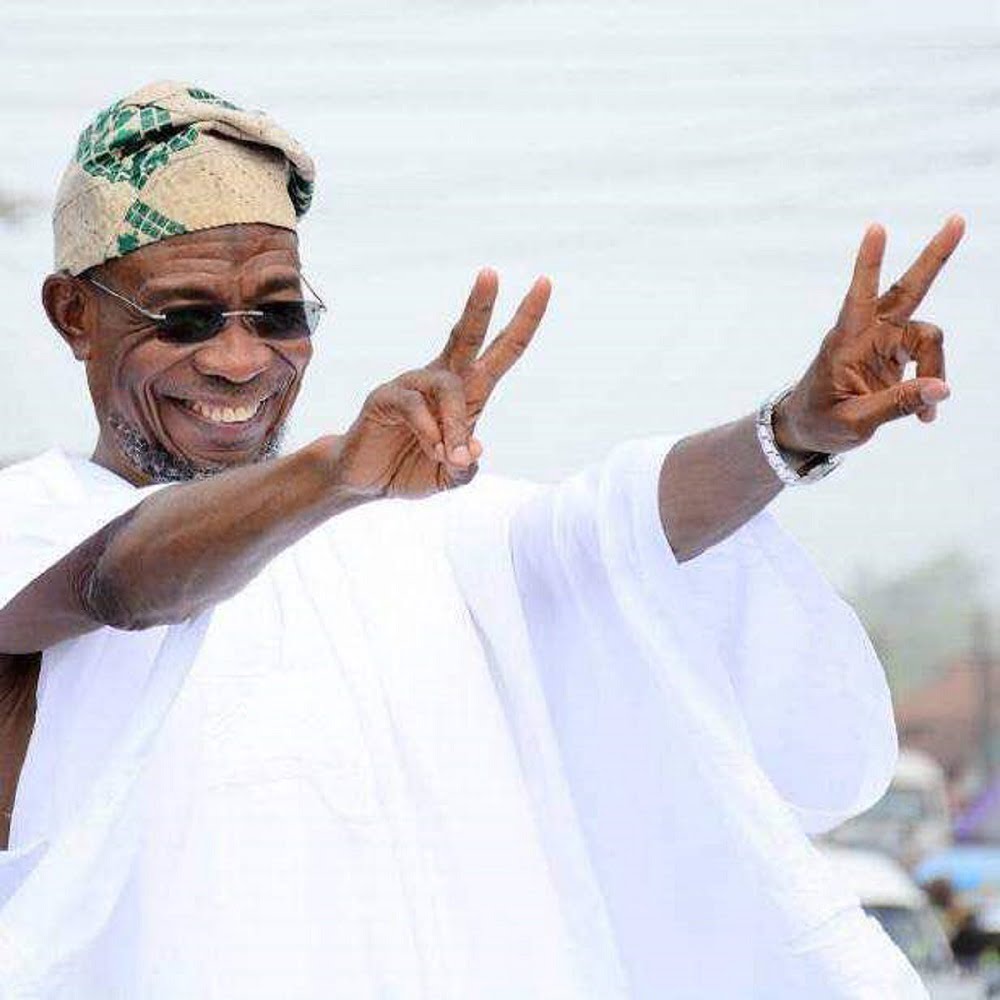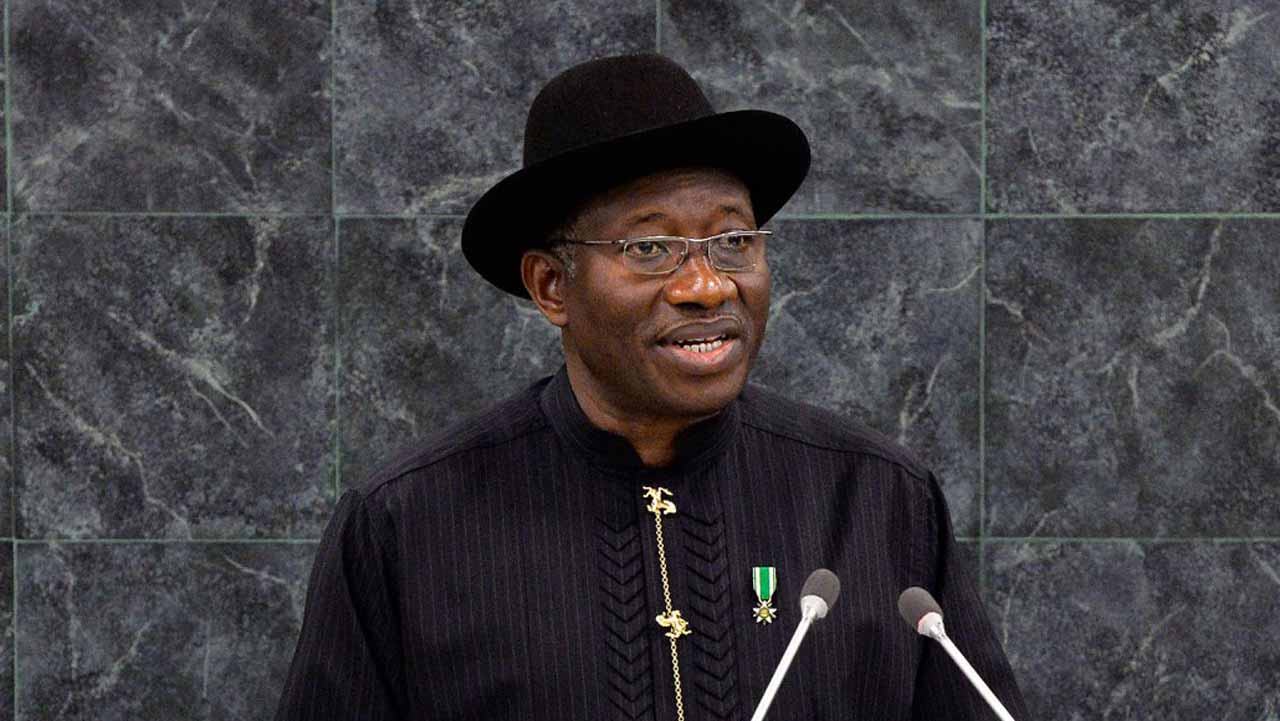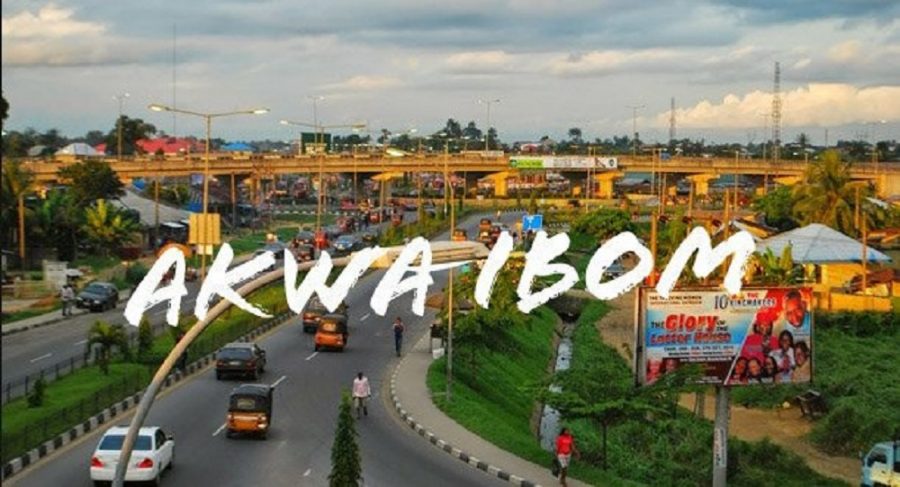The Nigeria Police Force has declared Ihuoma Julia Nneji, daughter of ABC Transport founder Frank Nneji, wanted for alleged criminal defamation, injurious falsehood, and cyberstalking. The declaration was made by the Nigeria Police Force National Cybercrime Centre (NPF-NCCC) and announced via the Force’s official social media channels on April 15, 2025.
According to the police, Ms. Nneji is accused of orchestrating a targeted online campaign against an Abuja-based businessman between August and September 2024. The campaign allegedly involved cyberbullying and blackmail, with Ms. Nneji and her associates disseminating defamatory content across various social media platforms.
In response to these allegations, Ms. Nneji filed a defamation lawsuit in February 2025 against social media influencer Martins Vincent Otse, known as VeryDarkMan (VDM), and others. The lawsuit, lodged at the Federal High Court in Abuja, claims that VDM and others made false statements about her personal life, including accusations of misrepresenting her profession and undergoing cosmetic procedures .
The legal proceedings have sparked a broader debate about the boundaries of free speech and the enforcement of cybercrime laws in Nigeria. Human rights lawyer Femi Falana, SAN, has criticized the police’s actions, stating that the arrest and prosecution of individuals for cyberstalking and related offenses are unconstitutional. He argues that Section 24 of the Cybercrime Act 2015, which criminalized such offenses, was repealed following judgments by the ECOWAS Court declaring it illegal .
Despite these legal challenges, the Nigeria Police Force maintains that online insults and cyberbullying are punishable offenses under the Cybercrimes (Prohibition, Prevention, etc.) Act, 2015. Police spokesperson Olumuyiwa Adejobi emphasized that hurling insults online constitutes cyberbullying and is not protected as free speech .
The case has attracted significant public attention, with many Nigerians expressing mixed reactions on social media. Some support Ms. Nneji’s legal actions, while others criticize the police’s interpretation of cybercrime laws and the potential implications for freedom of expression.
As the legal battle unfolds, the outcome could set a precedent for how cybercrime laws are interpreted and enforced in Nigeria, particularly concerning the balance between protecting individuals from online harassment and upholding constitutional rights to free speech.






